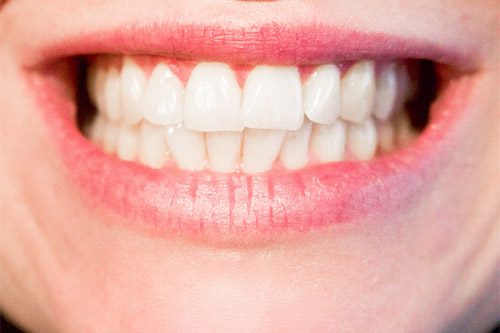2 Tips to take better care of your gums

The gums are a shield for the teeth. This oral mucosa plays an important role in the prevention of many pathologies.
Bleeding signals inflammation, gingivitis at best. A bacterial imbalance and the presence of dental plaque will cause antibodies to enter the blood vessels and promote bleeding. The use of a toothbrush that is too hard aggravates this symptom, but it is rather a lack of brushing that is at the origin of the inflammation. Conversely, never bleeding does not exclude a problem. “Current Woman” gives you simple tips to take care of your gums.
Swelling of the gums is often accompanied by:
- Redness,
- Pain,
- Bleeding (spontaneous, or during brushing),
- A change in texture (the gums become softer)
- And/or bad breath.
How to recognize a gum infection?
First of all, let’s remember that a healthy, healthy gum is not swollen and does not bleed, even when brushing your teeth. It is generally firm, pale pink in color. However, everyone can one day deal with superficial inflammation, characterized by abnormal swelling of the gums in the lower or upper jaw. This swelling can be localized around a few teeth, or generalized throughout the mouth. This is called hypertrophy of the gums.
2 tips to take better care of your gums
1- Mouthwashes are protective
FAKE. They mostly freshen breath temporarily. Most brands claim a reduction in plaque-causing bacteria. But repeated use has not yet been proven to significantly preserve gum health. The risk is even to believe that they are protected by their assets and to brush their teeth less well when this gesture is the only effective daily hygiene measure. To be done twice a day for 2 minutes, with a soft brush as well as dental floss or brushes for the interstices or better still the dental jet.
“It eliminates dental plaque, which contains bacteria also implicated in many distant pathologies, such as myocardial infarction, stroke, rheumatoid arthritis and even Alzheimer’s disease. “
2- Regular scaling is the solution to preserve the gums
TRUE. It eliminates dental plaque, which contains bacteria also involved in many remote pathologies, such as myocardial infarction, stroke, rheumatoid arthritis and even Alzheimer’s disease.
Scaling should be annual in the absence of any particular dental and health problem, or semi-annual in the event of diabetes and heart disease. And the more frequent it is, the less painful it is, because the tartar to be eliminated is still soft.







